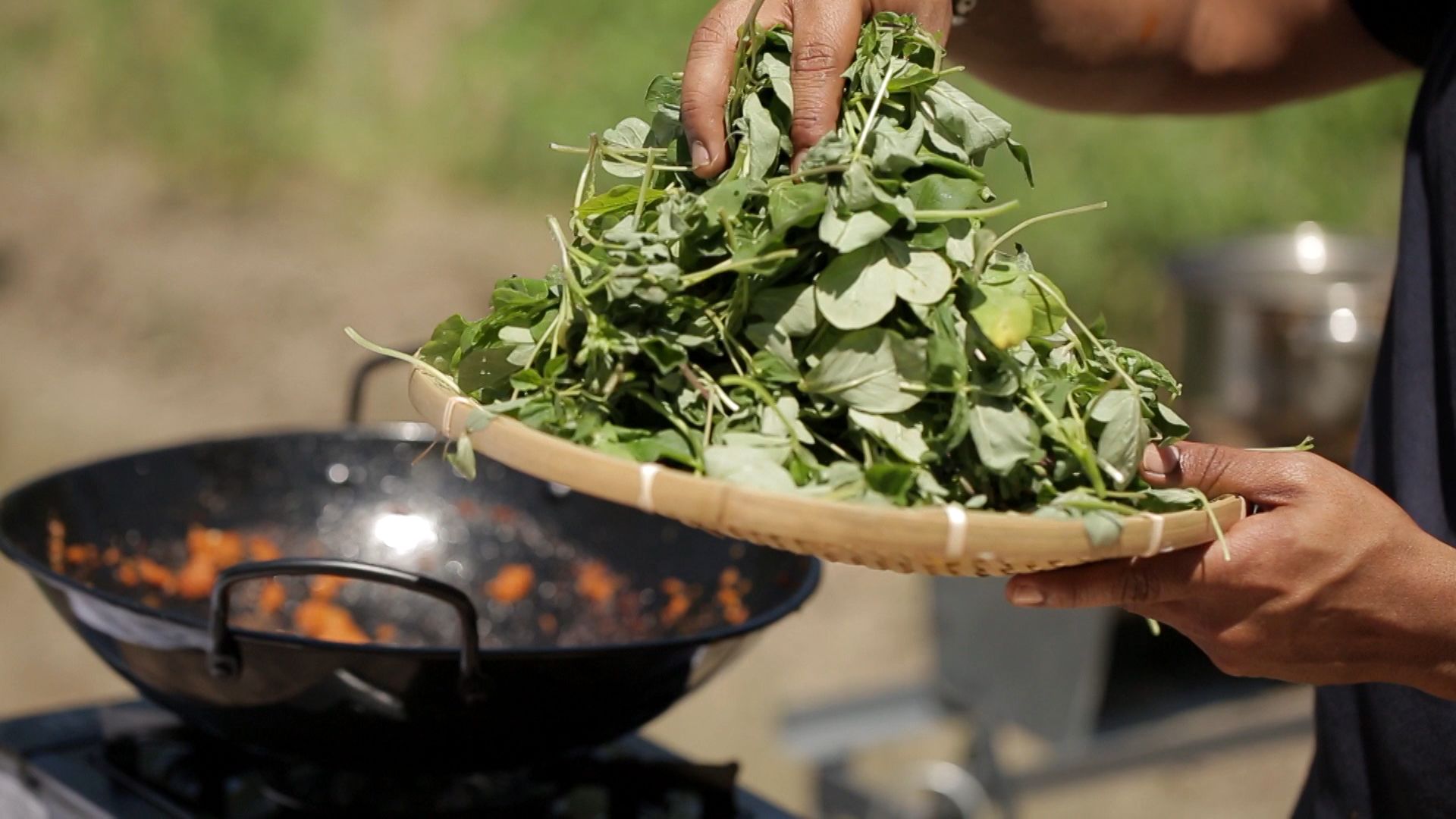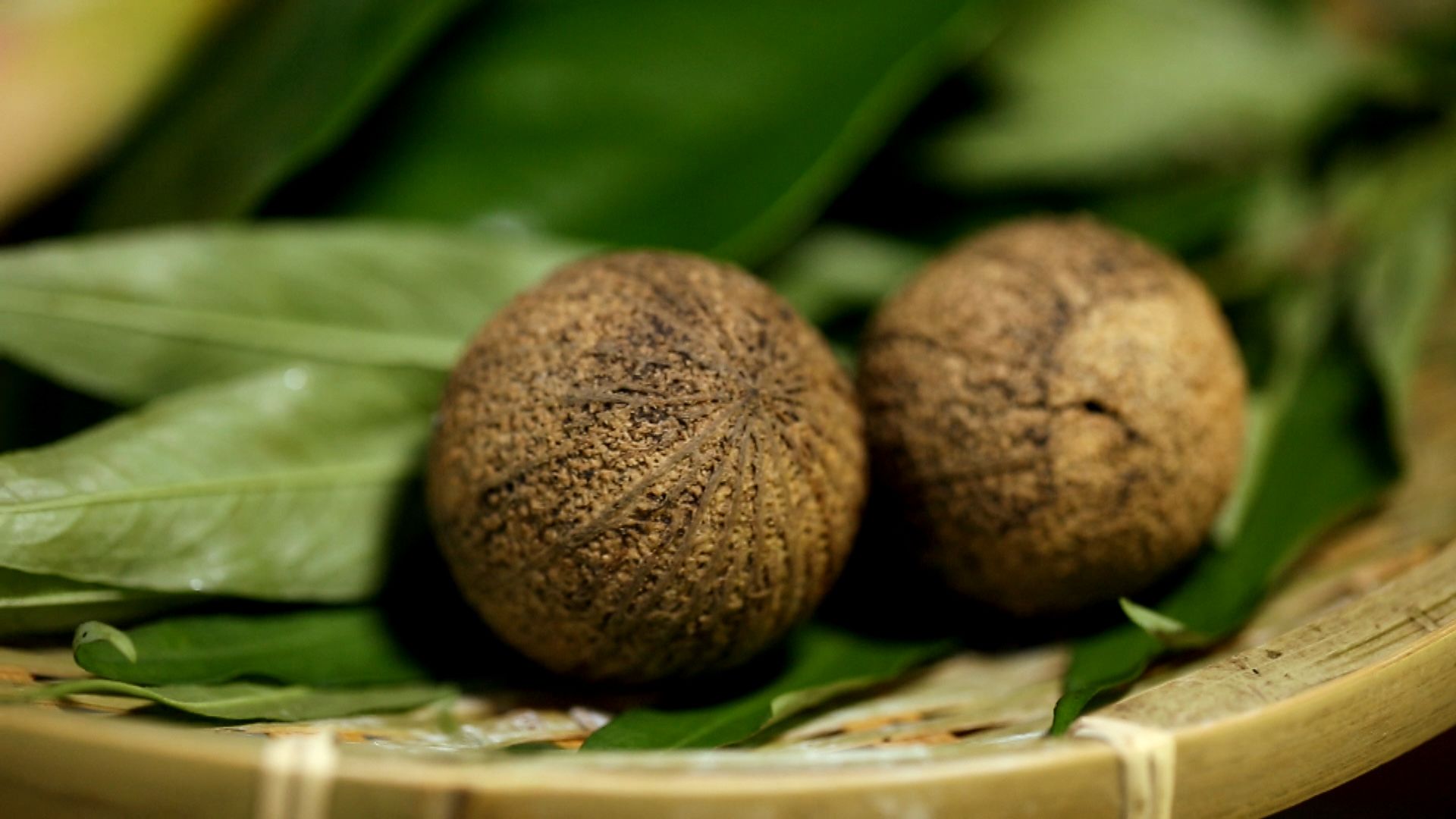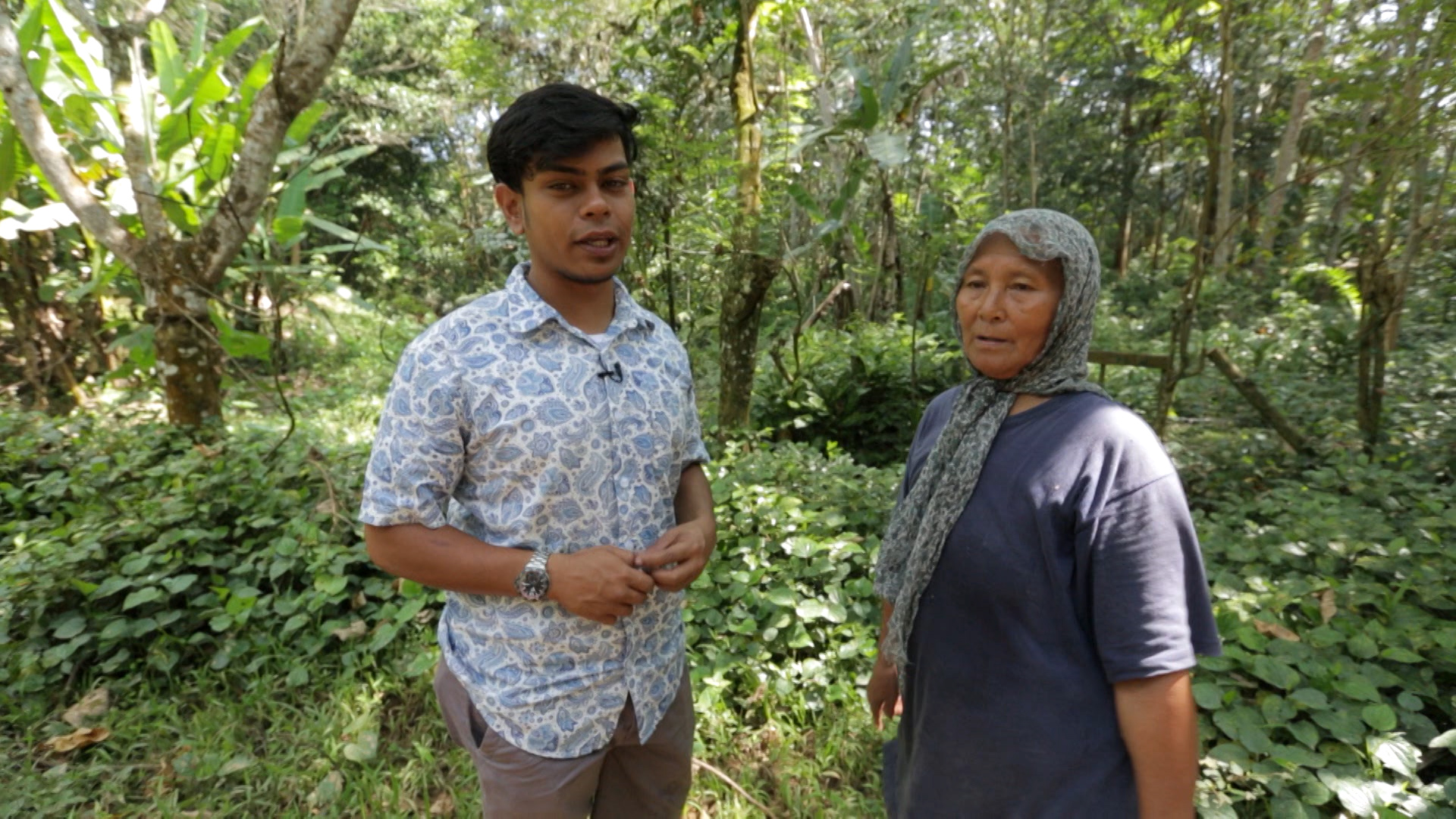THERE is a local tale in Gemencheh, Negri Sembilan, that goes like this: Once upon a time, the residents of Gemencheh narrowly escaped a war with Johol over some gold mines, thanks to a dish of bitter maman leaves.
The people of Gemencheh so hated the Joholians, they decided to play a nasty prank – serving up a dish of maman leaves liberally garnished with chilli and salt.
“It was supposed to taste terrible, all bitter, spicy and salty,” said Kampung Gedok village head and maman farmer, Pahim Mahmud, with a laugh. “But they liked it instead! And just like that, war was averted.”
It’s a great tale, and one that Pahim is trying to share with the world to ensure this piece of cultural history isn’t forgotten.
Luckily, he isn’t alone. The Local Kitchen, a food series by The Star’s award-winning documentary team, R.AGE, is highlighting maman leaves along with four other little-known local ingredients, in an effort to remind Malaysians of the rich culinary diversity our country enjoys.
“We’ve lost our pride in what grows on our own land,” said R.AGE senior producer Elroi Yee. “Malaysia is full of hidden culinary gems; we just need to appreciate them. That’s what The Local Kitchen’s message is.”
This sentiment is shared by The Local Kitchen’s host, chef and restaurateur Nurilkarim Razha.
“Malaysians seem to only get excited over imported ingredients,” he said. “They wouldn’t serve ulam or river fish because they think they’re ‘kampung’ and inferior. It’s a bit worrying!”
To combat these preconceptions, The Local Kitchen travelled across the country looking for Malaysia’s best ingredients. What it found was incredible.
From Orang Asli ingredients picked from the jungle to fresh seaweed harvested from the sparkling sea off Semporna Island, there was no shortage of culinary gems to explore.
The challenge, though, was finding them.

The bitter maman leaves may have prevented a war, but only time will tell if they can win the war against being forgotten.
The sheer lack of information on local ingredients, online or offline, was crippling.
“We had a hard time finding all the ingredients,” admitted Nuril. “I only knew of some of them. The rest were hard to source.”
That’s why hosting The Local Kitchen made a big impact on him, he said. “I learned so much, both about the ingredients themselves as well as the cultural heritage they represent, and I think people ought to, too.”
“Back then, the only way to protect our ingredients was to keep them to ourselves,” she said. “We didn’t know to claim our heritage.”
Watch the series: The Local Kitchen
Dying knowledge
The buah kulim is a true jungle gem: used by generations of Semai people in everything from grilled meat to curries, they’re little brown balls that contain an explosion of garlicky flavour.
Outside the Semai villages, however, they’re virtually unknown.
The Orang Asli guard their ingredients fiercely, said Tijah Yok Chopil, 49, who works to promote Orang Asli culture.
“Back then, the only way to protect our ingredients was to keep them to ourselves,” she said. “We didn’t know to claim our heritage.”
Her biggest worry is that with publicity, the secret ingredients the Orang Asli have been harvesting would become well known and attract poachers. Or the authorities may decide to make these Orang Asli resources like the buah kulim a protected species.
“If that happens, how are we going to harvest and sell them?” she said worriedly.

Malaysia is full of amazing ingredients, like the buah kulim, with its rich garlicky bouquet – we just need to find them.
The community depends on the forest for both food and making a living by selling some of the forest produce.
Slowly, some members of the community, including Tijah, are seeing how some promotion could help in their fight to protect their heritage food.
“Videos like The Local Kitchen tell people that these ingredients are ours – hopefully people will watch it and not try to steal our products for themselves,” she said.
“They can buy the forest produce from us, of course,” she added with a laugh. “But please acknowledge that it’s the Orang Asli who has the knowledge of edible forest food and plays a role in contributing to the country’s food diversity.”
We have much to learn from the Orang Asli when it comes to foraging and cooking with foraged ingredients.
“Everything, from awareness of the food itself to preparation methods, is passed down orally,” said Nuril.
“That’s why it was so hard to find the ingredients to do this series of videos. And after finding them, we also had to learn how to prepare them from the locals. There isn’t anything online, let alone recipe books.”
That, he said, could have contributed to why Malaysians seem to be more familiar with other culinary techniques.
“What most chefs consider ‘proper’ culinary techniques come from French and European kitchens,” he said. “But that’s also because they’ve been recording and writing everything down since Day One, whereas we haven’t!”
“We’re a bit late, so we really need to start talking about our local ingredients,”

Sarifah Aminah is one of the few people left who knows how to cure kepayang. If knowledge isn’t passed down, the skill will soon die out, she said.
Building an appetite
The biggest challenge for farmers of local products like Tijah and Pahim lies in a lack of demand. In order to survive, they have to grow and sell other products like corn.
But according to Nuril, the way forward is simple: spread the word.
“We’re a bit late, so we really need to start talking about our local ingredients,” he said.
“Build an appetite for our local food as well as ensure there’s knowledge about how to prepare and use them in our cooking; only then will demand grow. How can there be a demand for something we don’t even know exists?”
Pahim, too, is doing his bit to ensure his maman leaves never leave people’s minds. He recently expanded his farm from one hectare to four, and plans to open more stalls to sell his produce.
“I’m lucky because my friends are helping me spread the word,” he said. “They’ve been writing about maman leaves on the Internet. I didn’t even know they were doing that!”
On his part, he tells customers about the story behind the leaves. His efforts seem to be paying off.
Thanks to Pahim and his friends, awareness has spread regarding the rendang maman that’s a Negri Sembilan specialty, so much so that he did exceptionally brisk business over the Hari Raya period.
“I sold three tonnes of leaves!” he said jubilantly. “Not only are people buying leaves, they’re now also buying seeds to grow the leaves on their own. I even heard of one person who has started growing maman leaves all the way in Los Angeles!”
Now that things are looking up for maman leaves, his new challenge lies in finding more staff.
“Young people nowadays don’t want to work on a farm,” he said in a more subdued tone. “They’re scared of mud, scared of heat, scared of rain. They would rather work in a factory.”
“Hopefully The Local Kitchen series will show them that there’s no shame in being a farmer, in fact, it’s the best way to ensure we never forget our heritage.”


Leave a reply